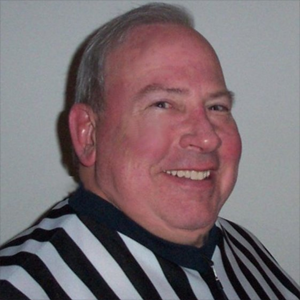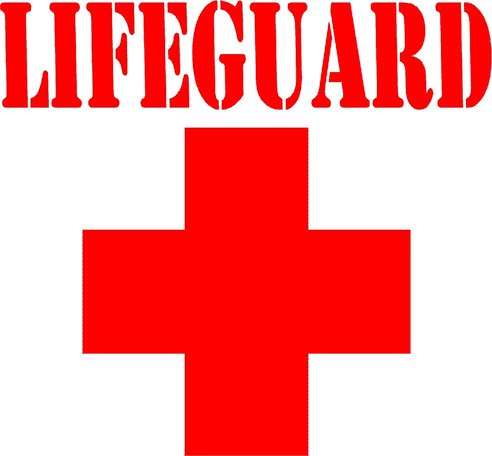
Rndballref
20 Years Experience
Chicago, IL
Male, 60
For twenty years I officiated high school, AAU and park district basketball games, retiring recently. For a few officiating is the focus of their occupation, while for most working as an umpire or basketball referee is an avocation. I started ref'ing to earn beer money during college, but it became a great way to stay connected to the best sports game in the universe. As a spinoff, I wrote a sports-thriller novel loosely based on my referee experiences titled, Advantage Disadvantage
I think you are asking this question: A1 gets the ball from the opening tip in his backcourt and shoots the ball into B1's basket (his oppponent's basket). How is it scored?
If this is your question, the answer is count the basket for team B, and A gets the ball for a throw in in their backcourt.
Like most things in life it is not difficult to be a referee. However, it is very hard to be a good referee. Here are some of the reasons: 1) You need to study the rule book - it takes a long time to really understand and internalize them, 2) once the rules are understood it takes a long time to decide which rules should not be enforced at which levels/situations, 3) since there is a learning curve, you have to make a big commitment to it before you can be well compensated, 4) even if you develop into a good referee, you have to be lucky enough to be "discovered" and/or mentored by people in a position to help and promote you, and finally you have to have a different occupation that allows you spend your time investing in ref'ing. Oh yeah, you also need thick skin.
No, it is absolutely not ok. A ref must be above reproach, and when there are lingering bad feelings a good ref will put the history behind them. So first, if a ref swallows the whistle - in rec leagues it is common so the games end quicker - then report the ref to the league's assignment chair. Not calling obvious fouls almost always leads to rough play as the players feel compelled to protect themselves. 2nd, a ref should be fired for starting the game with an unearned T.
The coach can argue mixup all he wants, but it shouldn't matter. Awarding an unearned free throw is correctible, but all points and fouls earned before the error is detected count. In this case, an extra free throw was not awarded - the referees simply misled the lane rebounders, and that is NOT correctible. So, argue til you are blue in the face, and call it lousy officiating, but the play and points by rule stand.
Dating Website Employee
 What are the most common mistakes guys make on out their profiles?
What are the most common mistakes guys make on out their profiles?
Lifeguard
 Did you ever have to perform CPR or mouth-to-mouth on a swimmer?
Did you ever have to perform CPR or mouth-to-mouth on a swimmer?
Zookeeper and Animal Trainer
 Why are some people so protective of endangered species?
Why are some people so protective of endangered species?
The rule book states that a player is out of bounds if any part of his body is touching out of bounds or touching a player who is out of bounds. It also states that an airborne player has the geographical position of where he jumped from (until he lands). So the player does not by rule have to have two feet in bounds, just one as long as the other is in the air and not out of bounds.
Let's suppose that a player takes two hands on top of the ball and pushes it to the ground - double dribble. You see this sometimes when a player falls and use the ball to break the fall. What if a player takes one hand and pushes the ball to the floor ? That is an interrupted dribble until the player picks it up, or can continue the dribble with one hand (like the Globetrotters). If instead, he picks up the ball, he has used up the dribble and must pass or shoot from there.
I believe that is a made up rule. The only way to construe a violation would be to consider it unsportsmanlike, but that is a stretch. The way to handle it is if there is a dead ball after the team was counting approach the coach and ask if the coach considers counting in that way sporting. Maybe he will stop them, but as a ref I would not call a foul.
-OR-
 Login with Facebook
Login with Facebook (max 20 characters - letters, numbers, and underscores only. Note that your username is private, and you have the option to choose an alias when asking questions or hosting a Q&A.)
(A valid e-mail address is required. Your e-mail will not be shared with anyone.)
(min 5 characters)
By checking this box, you acknowledge that you have read and agree to Jobstr.com’s Terms and Privacy Policy.
-OR-
 Register with Facebook
Register with Facebook(Don't worry: you'll be able to choose an alias when asking questions or hosting a Q&A.)